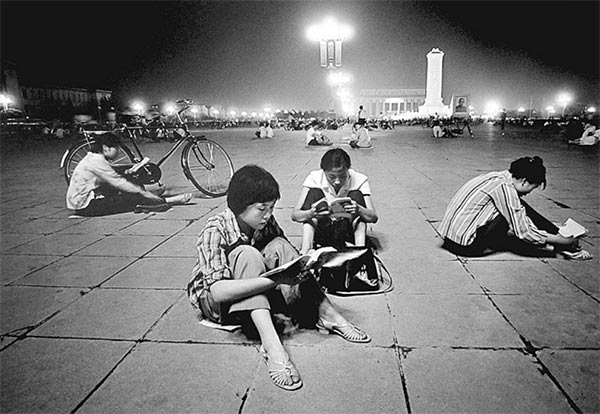 |
|
People studying hard before the college enrollment exam at Tiananmen Square in Beijing in 1981. [Photo by Liu Heung Shing/China Daily]
|
Local lifestyle
It has now become a luxury for a publication or news agency to send a photographer to a foreign country, Liu said. In the past, a photojournalist would arrive in a strange country and experience the local lifestyle without much pressure. He or she would also be granted a few years to immerse himself into the local life and culture, filing reports from the field. Some great photographers, such as Henri Cartier-Bresson (1908-2004), created their most celebrated works this way.
"I might be the last generation of them," Liu said. "Photojournalism has changed so much."
He adds that news publications and agencies nowadays would instead hire local photographers because it is more economical and efficient. He says that this has resulted in the loss of a "fresh pair of eyes" and the unique observation of an experienced journalist or artist from another land.
Having been in China for so long, Liu believes there is an urgent need to improve lateral thinking in China's education system before the standard of photography in the country can improve. He hopes that the Shanghai Center of Photography (SCoP) will be able to foster a systematic and effective narrative to rectify this.
"When editors pick the images for the front page, their judgment is largely the same," Liu says.
"I believe this judgment is lacking in China today...It is education, and the training in lateral thinking, that will help a photographer capture the best picture. Education in China has for a very long time been focused on the vertical depth of knowledge. Lateral training is lacking," Liu adds.

